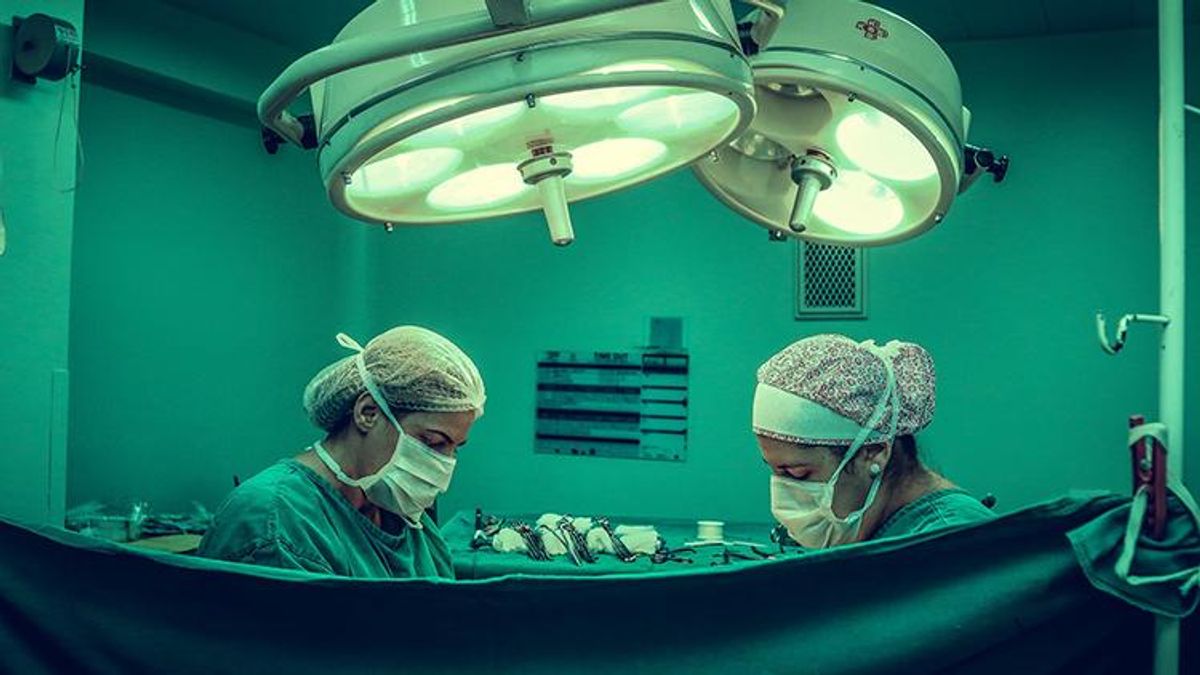Lawmakers in South Dakota and Florida want to make it a felony for doctors to give gender-transition treatment to minors.
The bills introduced in both states would criminalize not only gender-affirmation surgeries -- which are not usually performed on minors anyway, in line with accepted medical protocols -- but also hormone treatment and puberty blockers.
"Obviously, when the government is proposing wholesale bans on people being able to access medically accepted standards of care, that suggestion itself is dangerous for young people," Chase Strangio, a staff attorney with the American Civil Liberties Union LGBT and HIV project, said on a conference call with reporters this week.
The South Dakota bill is the most imminent threat, he said. It's scheduled for a committee hearing Wednesday.
Its lead sponsor, Republican Rep. Fred Deutsch, said he proposed the bill because he had met transgender people who'd been harmed by undergoing transition procedures. There has been a much-publicized Texas custody dispute over a child's transition, but Deutsch said he was preparing his legislation before he heard about that.
Parents "are warned that if they do not consent to medical treatment, their child will be at higher risk of suicide," he told the Sioux Falls Argus Leader. "But there's no evidence to support this claim. Kids who are contemplating suicide require evaluation and treatment for conditions such as depression and anxiety. Castration, hysterectomies, puberty blockers, and high-dose hormones are not treatments for psychological conditions."
Many beg to differ. "Research shows that transgender youth whose families affirm their gender identity have a 52 percent decrease in suicidal thoughts, a 48 percent decrease in suicide attempts and significant increases in self-esteem and general health," states a press release from the ACLU's South Dakota affiliate. The ACLU also notes that major medical organizations, including the American Academy of Pediatrics and the American Medical Association, endorse gender-affirming care for young people, to be arranged between doctors and patients.
Doctors in South Dakota don't perform transition-related surgeries on minors, and other treatments should be a matter for doctors and patients to decide, Democratic Rep. Jamie Smith, the state's House minority leader, told the Argus Leader.
"This bill is frustrating on many levels," he said. "First of which, it's a constant assault on trans people in the state of South Dakota year after year. To think that a doctor doing their job would be a felon is unheard of."
Mara Keisling, executive director of the National Center for Transgender Equality, issued a statement calling the South Dakota bill "one of the most extreme and dangerous pieces of legislation in the country," as it "threatens doctors with prison simply for providing necessary health care."
The Florida legislation, identical to South Dakota's, was introduced this week, along with several other anti-LGBTQ bills, some of which seek to override local antidiscrimination and anti-conversion therapy ordinances. The trans health care measures, filed in both the House and Senate, are apparently not scheduled for committee hearings yet.
Gina Duncan, Equality Florida's director of transgender equality, said of the legislation, "Transgender youth are some of the most at risk in our community. It is outrageous that conservative legislators would threaten their health and safety. Medical professionals, not politicians, should decide what medical care is in the best interest of a patient. Forcing a doctor to deny best practice medical care and deny support to transgender youth can be life-threatening."
Bills have also been introduced in South Carolina and Missouri to ban transition-related care for minors, but they wouldn't impose criminal penalties on doctors, Strangio said. Last fall, legislators in Georgia and Kentucky said they were preparing bills to prohibit such care for young people, but the measures haven't been introduced yet.












































































